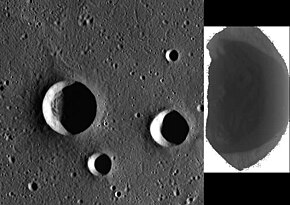
Maya Angelou was an American memoirist, poet, and civil rights activist. She published seven autobiographies, three books of essays, several books of poetry, and is credited with a list of plays, movies, and television shows spanning over 50 years. She received dozens of awards and more than 50 honorary degrees. Angelou's series of seven autobiographies focus on her childhood and early adult experiences. The first, I Know Why the Caged Bird Sings (1969), tells of her life up to the age of 17 and brought her international recognition and acclaim.

I Know Why the Caged Bird Sings is a 1969 autobiography describing the young and early years of American writer and poet Maya Angelou. The first in a seven-volume series, it is a coming-of-age story that illustrates how strength of character and a love of literature can help overcome racism and trauma. The book begins when three-year-old Maya and her older brother are sent to Stamps, Arkansas, to live with their grandmother and ends when Maya becomes a mother at the age of 16. In the course of Caged Bird, Maya transforms from a victim of racism with an inferiority complex into a self-possessed, dignified young woman capable of responding to prejudice.

The Heart of a Woman (1981) is an autobiography by American writer Maya Angelou. The book is the fourth installment in Angelou's series of seven autobiographies. The Heart of a Woman recounts events in Angelou's life between 1957 and 1962 and follows her travels to California, New York City, Cairo, and Ghana as she raises her teenage son, becomes a published author, becomes active in the civil rights movement, and becomes romantically involved with a South African anti-apartheid fighter. One of the most important themes of The Heart of a Woman is motherhood, as Angelou continues to raise her son. The book ends with her son leaving for college and Angelou looking forward to newfound independence and freedom.
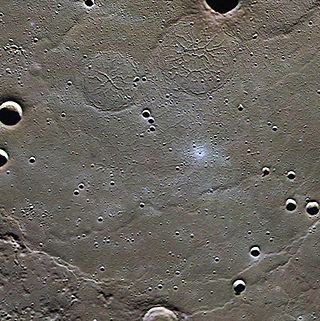
Goethe Basin is an impact basin at 81.4° N, 54.3° W on Mercury approximately 317 kilometers in diameter. It is named after German poet Johann Wolfgang von Goethe.

Gather Together in My Name is a 1974 memoir by American writer and poet Maya Angelou. It is the second book in Angelou's series of seven autobiographies. Written three years after the publication of and beginning immediately following the events described in I Know Why the Caged Bird Sings, it follows Angelou, called Rita, from the ages of 17 to 19. The title is taken from the Bible, but also conveys how one Black female lived in the white-dominated society of the U.S. following World War II.

"On the Pulse of Morning" is a poem by writer and poet Maya Angelou that she read at the first inauguration of President Bill Clinton on January 20, 1993. With her public recitation, Angelou became the second poet in history to read a poem at a presidential inauguration, and the first African American and woman. Angelou's audio recording of the poem won the 1994 Grammy Award in the "Best Spoken Word" category, resulting in more fame and recognition for her previous works, and broadening her appeal.

Singin' and Swingin' and Gettin' Merry like Christmas is the third book of Maya Angelou's seven-volume autobiography series. Set between 1949 and 1955, the book spans Angelou's early twenties. In this volume, Angelou describes her struggles to support her young son, form meaningful relationships, and forge a successful career in the entertainment world. The work's 1976 publication was the first time an African-American woman had expanded her life story into a third volume. Scholar Dolly McPherson calls the book "a graphic portrait of the adult self in bloom" and critic Lyman B. Hagen calls it "a journey of discovery and rebirth".

And Still I Rise is author Maya Angelou's third volume of poetry, published by Random House in 1978. It was published during one of the most productive periods in Angelou's career; she had written three autobiographies and published two other volumes of poetry up to that point. Angelou considered herself a poet and a playwright, but was best known for her seven autobiographies, especially her first, I Know Why the Caged Bird Sings, although her poetry has also been successful. She began, early in her writing career, alternating the publication of an autobiography and a volume of poetry.

Just Give Me a Cool Drink of Water 'fore I Diiie (1971) is the first collection of poems by African-American writer and poet Maya Angelou. Many of the poems in Diiie were originally song lyrics, written during Angelou's career as a night club performer, and recorded on two albums before the publication of Angelou's first autobiography I Know Why the Caged Bird Sings (1969). Angelou considered herself a poet and a playwright, but is best known for her seven autobiographies. Early in her writing career she began a practice of alternating the publication of an autobiography and a volume of poetry. Although her poetry collections have been best-sellers, they have not received serious critical attention and are more interesting when read aloud.
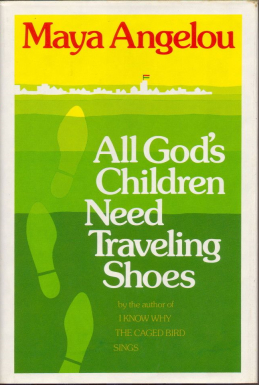
All God's Children Need Traveling Shoes, published in 1986, is the fifth book in African-American writer and poet Maya Angelou's seven-volume autobiography series. Set between 1962 and 1965, the book begins when Angelou is 33 years old, and recounts the years she lived in Accra, Ghana. The book, deriving its title from a Negro spiritual, begins where Angelou's previous memoir, The Heart of a Woman, ends — with the traumatic car accident involving her son Guy — and closes with Angelou returning to America.

A Song Flung Up to Heaven is the sixth book in author Maya Angelou's series of autobiographies. Set between 1965 and 1968, it begins where Angelou's previous book All God's Children Need Traveling Shoes ends, with Angelou's trip from Accra, Ghana, where she had lived for the past four years, back to the United States. Two "calamitous events" frame the beginning and end of the book—the assassinations of Malcolm X and Martin Luther King Jr. Angelou describes how she dealt with these events and the sweeping changes in both the country and in her personal life, and how she coped with her return home to the U.S. The book ends with Angelou at "the threshold of her literary career", writing the opening lines to her first autobiography, I Know Why the Caged Bird Sings.

The themes encompassed in African-American writer Maya Angelou's seven autobiographies include racism, identity, family, and travel. Angelou (1928–2014) is best known for her first autobiography, I Know Why the Caged Bird Sings (1969). The rest of the books in her series are Gather Together in My Name (1974), Singin' and Swingin' and Gettin' Merry Like Christmas (1976), The Heart of a Woman (1981), All God's Children Need Traveling Shoes (1986), A Song Flung Up to Heaven (2002), and Mom & Me & Mom (2013).
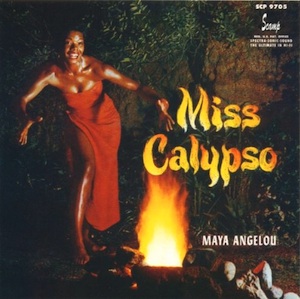
Miss Calypso is the debut and only studio album by American writer and poet Maya Angelou, released in 1957. The album was released during a craze for calypso music catalyzed by Harry Belafonte the previous year. Angelou sings every song on the album, and she composed five of them. Behind Angelou's voice, studio guitarist Tommy Tedesco and percussionist Al Bello created an exotic mood. Angelou toured in support of the album, performing calypso songs in nightclubs. The album was a modest success but Angelou did not make any further records as a singer.
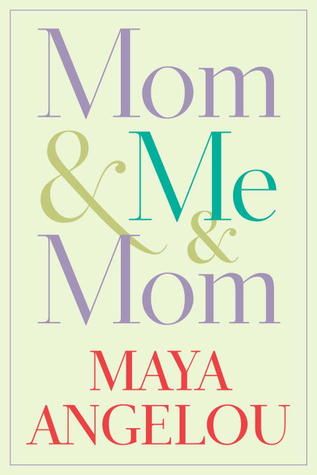
Mom & Me & Mom (2013) is the seventh and final book in author Maya Angelou's series of autobiographies. The book was published shortly before Mother's Day and Angelou's 85th birthday. It focuses, for the first time in her books, on Angelou's relationship with her mother, Vivian Baxter. The book explains Baxter's behavior, especially Baxter's abandonment of Angelou and Angelou's older brother when they were young children, and fills in "what are possibly the final blanks in Angelou's eventful life". The book also chronicles Angelou's reunion and reconciliation with Baxter.
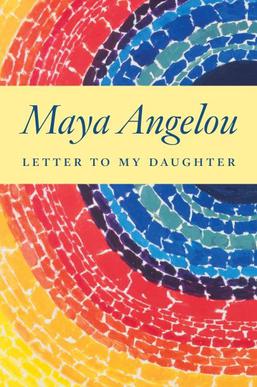
Letter to My Daughter (2009) is the third book of essays by African-American writer and poet Maya Angelou. By the time it was published, Angelou had written two other books of essays, several volumes of poetry, and six autobiographies. She was recognized and highly respected as a spokesperson for black people and women, and had become "a major autobiographical voice of the time". Angelou had no daughters herself, but was inspired to write Letter as she was going through 20 years of notes and essay ideas, some of which were written for her friend Oprah Winfrey. Angelou wrote the book for the thousands of women who saw her as a mother figure, and to share the wisdom gained throughout her long life.

Shaker, Why Don't You Sing? is author and poet Maya Angelou's fourth volume of poetry, published by Random House in 1983. It was published during one of the most productive periods in Angelou's career; she had written four autobiographies and published three other volumes of poetry up to that point. Angelou considered herself a poet and a playwright, but was best known for her seven autobiographies, especially her first, I Know Why the Caged Bird Sings, although her poetry has also been successful. She began, early in her writing career, alternating the publication of an autobiography and a volume of poetry. Many of the poems in Shaker focus on survival despite threatened freedom, lost love, and defeated dreams. Over half of them are love poems, and emphasize the inevitable loss of love. "Caged Bird", which refers to Angelou's first autobiography, is contained in this volume.

Maya Angelou, an African-American writer who is best known for her seven autobiographies, was also a prolific and successful poet. She has been called "the black woman's poet laureate", and her poems have been called the anthems of African Americans. Angelou studied and began writing poetry at a young age, and used poetry and other great literature to cope with trauma, as she described in her first and most well-known autobiography, I Know Why the Caged Bird Sings. She became a poet after a series of occupations as a young adult, including as a cast member of a European tour of Porgy and Bess, and a performer of calypso music in nightclubs in the 1950s. Many of the songs she wrote during that period later found their way to her later poetry collections. She eventually gave up performing for a writing career.
"We Had Him" is a poem written by Maya Angelou about Michael Jackson. The poem was written for Jackson's memorial service on July 7, 2009, and read there by Queen Latifah in front of the approximately 2.5 to 3 billion worldwide viewers watching the memorial service.
